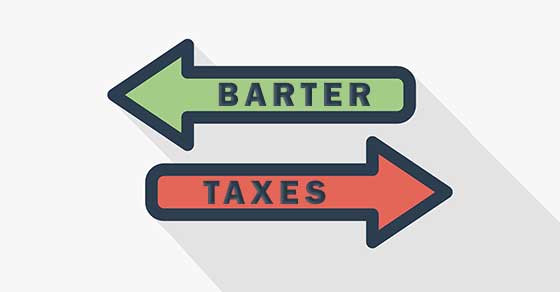Bartering: A taxable transaction even if your business exchanges no cash

Small businesses may find it beneficial to barter for goods and services instead of paying cash for them. If your business engages in bartering, be aware that the fair market value of goods that you receive in bartering is taxable income. And if you exchange services with another business, the transaction results in taxable income for both parties.
Income is also realized if services are exchanged for property. For example, if a construction firm does work for a retail business in exchange for unsold inventory, it will have income equal to the fair market value of the inventory.
Barter clubs
Many business owners join barter clubs that facilitate barter exchanges. In general, these clubs use a system of “credit units” that are awarded to members who provide goods and services. The credits can be redeemed for goods and services from other members.
Bartering is generally taxable in the year it occurs. But if you participate in a barter club, you may be taxed on the value of credit units at the time they’re added to your account, even if you don’t redeem them for actual goods and services until a later year. For example, let’s say that you earn 2,000 credit units one year, and that each unit is redeemable for $1 in goods and services. In that year, you’ll have $2,000 of income. You won’t pay additional tax if you redeem the units the next year, since you’ve already been taxed once on that income.
If you join a barter club, you’ll be asked to provide your Social Security number or employer identification number. You’ll also be asked to certify that you aren’t subject to backup withholding. Unless you make this certification, the club will withhold tax from your bartering income at a 24% rate.
Required forms
By January 31 of each year, the barter club will send you a Form 1099-B, “Proceeds from Broker and Barter Exchange Transactions,” which shows the value of cash, property, services, and credits that you received from exchanges during the previous year. This information will also be reported to the IRS.
If you don’t contract with a barter exchange but you do trade services, you don’t file Form 1099-B. But you may have to file a form 1099-MISC.
Many benefits
By bartering, you can trade away excess inventory or provide services during slow times, all while hanging onto your cash. You may also find yourself bartering when a customer doesn’t have the money on hand to complete a transaction. As long as you’re aware of the federal and state tax consequences, these transactions can benefit all parties. Contact us for more information.
© 2019



